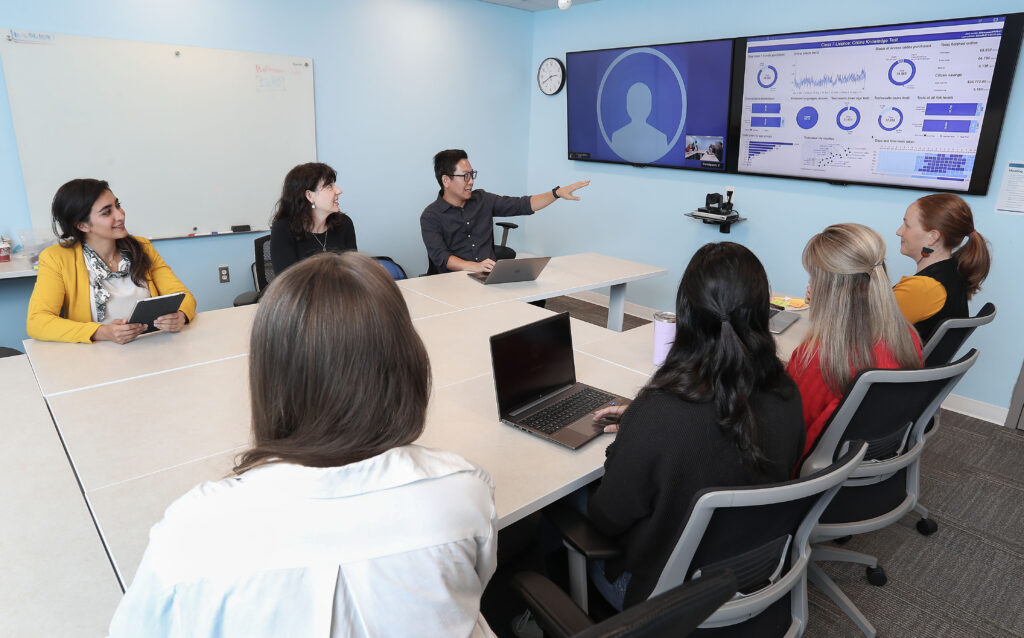By Gary Robitaille, Director, Justice and Housing Portfolio, Service Design and Delivery
Read that headline again: It’s not about the tech.
We, at the Department of Cyber Security and Digital Solutions, are here to make public services and technology better for everyone. The last word in that sentence is, without a doubt, the most important. What we do is about people – always has been and always will be. It is about our team members, our colleagues, and our partners who are delivering on their mandates. Above all else, it is about the people who use our services, internal government users and citizens alike. As I head into the 29th year of my IT and Digital career, it has become increasingly clear to me that it has NEVER been about the tech.
Of course the tech matters. It needs to be functional. It needs to be easy to use. And it needs to be affordable and sustainable. Many of us arrived here with expertise in the tech field. But bear with me, I think you’ll see that effective service delivery is about finding solutions and facilitating success for people, and then measuring that success, not just measuring how much tech we create or deliver.
Every day we show up with the goal of doing the hard work to make it easy for users.
What do I mean about it being about the people? For the vast majority of us, that means using tech to solve real world problems or streamline processes. In order to do that to the best of our abilities, we rely on each other, falling back on the trust, credibility, and value we’ve nurtured in our professional relationships.
In 2025, the single most important skill a digital professional can have is the ability to relate to, understand and hear the people we work with and for – empathy. In the early part of my career this was referred to as soft skills or interpersonal skills. Today, there is far more emphasis on these skills and the role they play in creating a trusting and collaborative workplace, where sometimes in the past, it was merely an overlooked paragraph in a corporate handbook. It is now recognized as a key predictor or indicator of success.
What does that mean from a practical sense? Take a breath and really listen. Become aware of the world the person in front of you operates in, whether they are a colleague, a partner, or an end-user. What is their mandate? What are their pressures? What are their priorities? What are their pain points? Answer your phone by saying “Hi, how can I make your day better?” It is hard work, but it will change both your own outlook and your relationships. When I hear Deputy Clarke say “we have to put in the hard yards” this is what I believe it means. Take the initiative and own your role in the relationship.
Be the partner you want to have.

Honesty, integrity, authenticity, trust, and empathy are the important tools of our trade. Being a trusted partner goes a long way when you have to have a crunchy conversation.
Say what you do and do what you say. This will go a long way to build trust.
Always strive to add value. Be critical with your own time and your partner’s time. If you have standing meetings to check in but have nothing of value to offer for that meeting, check in ahead of time and propose cancelling if there is nothing on the agenda you can add value to. Make every interaction you have with a partner a value-add interaction.
For our team members, listen to the problems and challenges they face but be the champion and promote the successes. Be a servant leader. In my team, for example, I communicate that while I hold the title of director, I am a team member like every other team member. I just have a different set of responsibilities and am accountable for different things. I’ll let you in on a little secret for our teams and for many across the public sector and our civil service, the hierarchy is rarely needed or even helpful. Structure a flat team hierarchy and collaborate with your team; you will see a difference, I promise you.
Whether you are delivering for internal or external users, be relentlessly focused on meeting their needs: that means doing discovery, learning about the actual problem, and finding an actual solution. That is the best way to build trust and credibility and those are the currencies in which we trade because that is what matters to the partners we serve.
So, when I say it is not about the tech, what I mean is that it is always about the people.
